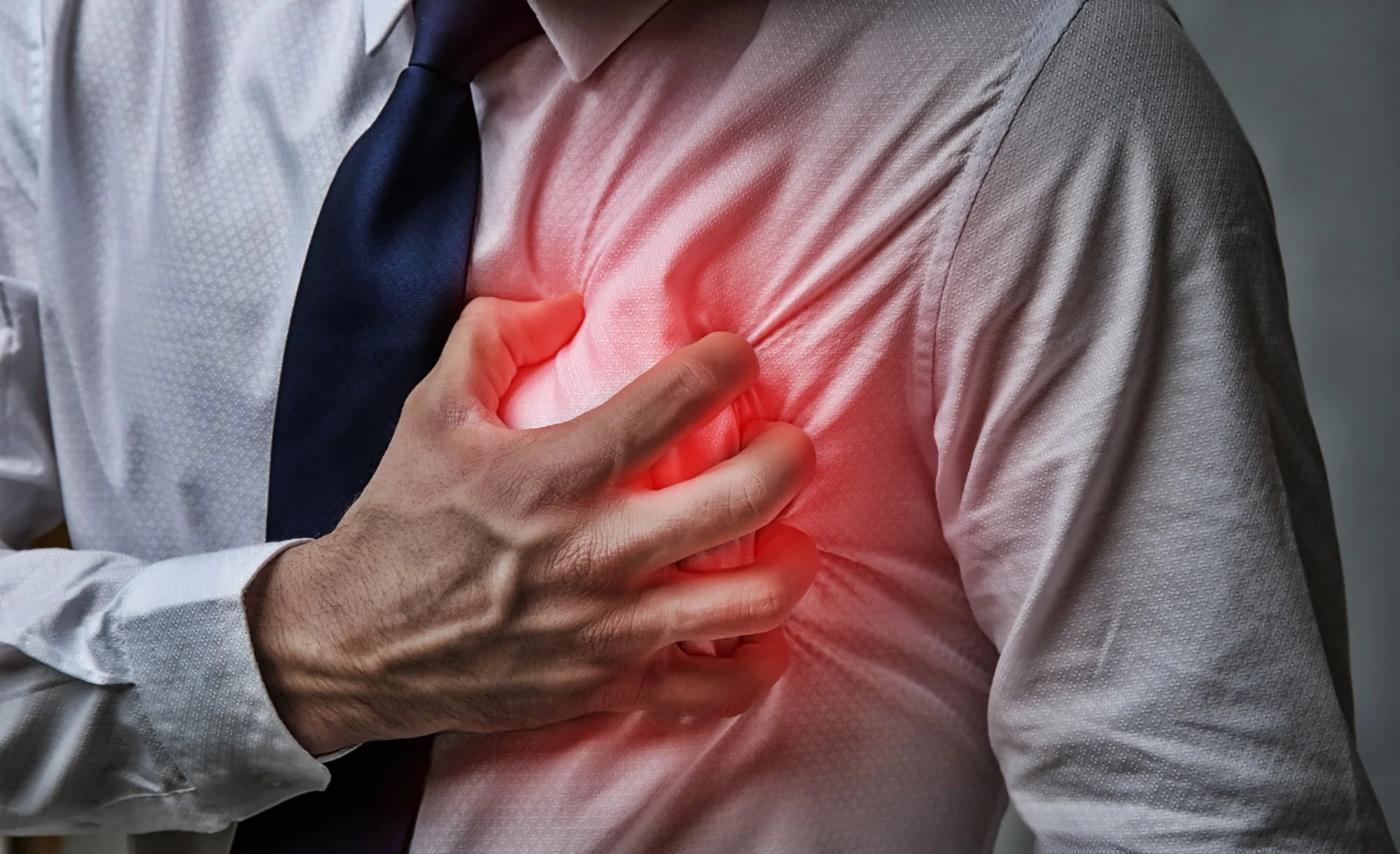
How To Survive A Heart Attack
In this blog post, we will explore how to survive a heart attack by learning about its causes, symptoms, and most importantly, the steps you can take to protect yourself and your loved ones.
Imagine this: you’re going about your day when suddenly, you feel a sharp pain in your chest. Could it be a heart attack? Understanding the signs and knowing what to do can make all the difference.
Let’s dive in and arm ourselves with life-saving knowledge!
Understanding Heart Attacks
Heart attacks, also known as myocardial infarctions, occur when blood flow to the heart is blocked. This blockage can be caused by a buildup of plaque in the arteries or a blood clot. Understanding the underlying causes of heart attacks is crucial in taking preventive measures for your cardiovascular health.
The symptoms of a heart attack can vary from person to person but may include chest pain or discomfort, shortness of breath, nausea, and lightheadedness. It’s essential to recognize these signs early on and seek medical help promptly.
If you experience any of these symptoms, don’t hesitate – call emergency services immediately. Time is of the essence when it comes to surviving a heart attack. Remember that every minute counts in getting the necessary treatment that could save your life.
By staying informed about what triggers heart attacks and being aware of the warning signs, you empower yourself to act swiftly and decisively in case of an emergency situation like a heart attack. Stay vigilant and prioritize your cardiovascular health!
A. Definition and Causes
A heart attack, also known as a myocardial infarction, occurs when blood flow to the heart is blocked or reduced. This blockage can be caused by a buildup of cholesterol, fat, and other substances that form plaques in the arteries supplying blood to the heart muscle.
The main causes of heart attacks are often related to lifestyle factors such as smoking, high cholesterol levels, high blood pressure, diabetes, obesity, and lack of physical activity. Genetic factors and age also play a role in increasing one’s risk for experiencing a heart attack.
Understanding the definition and causes of a heart attack is crucial in taking preventive measures to reduce your risk. By making healthy choices such as maintaining a balanced diet, exercising regularly, managing stress levels effectively, and avoiding tobacco products, you can significantly lower your chances of suffering from this life-threatening event.
B. Symptoms to Look Out For
Heart attacks can happen suddenly, so it’s vital to be aware of the symptoms. Chest pain or discomfort is a common sign – it may feel like pressure, squeezing, fullness, or pain. This sensation can last for a few minutes or come and go.
Other symptoms include upper body discomfort in one or both arms, the back, neck, jaw, or stomach. Shortness of breath with or without chest discomfort is another red flag. Breaking out in a cold sweat, nausea/vomiting, light-headedness are also signs to watch for.
It’s crucial not to ignore these symptoms if you experience them. Prompt action could save your life! If you suspect a heart attack based on these signs – don’t hesitate; seek immediate medical help!
Steps to Take During a Heart Attack
During a heart attack, time is of the essence. The first step to take is to call emergency medical assistance immediately. Do not delay or try to tough it out on your own – prompt medical attention can be life-saving.
If you have been prescribed aspirin by your doctor for such emergencies, take it as directed. Aspirin can help prevent blood clotting and minimize damage during a heart attack.
It’s crucial to stay calm and try to find a comfortable position either sitting or lying down. Avoid any strenuous activity that could further strain your heart.
Remember, every minute counts when experiencing symptoms of a heart attack. Acting swiftly and decisively can make all the difference in surviving this critical situation.
A. Call for Emergency Medical Assistance
When experiencing symptoms of a heart attack, it’s crucial to act swiftly. The moment you suspect something is wrong, don’t hesitate – call for emergency medical assistance immediately. Time is of the essence when it comes to surviving a heart attack.
Dial your local emergency number or 911 without delay. Inform the operator about your symptoms and that you suspect a heart attack. Stay on the line and follow any instructions given while help is on its way.
Do not attempt to drive yourself to the hospital, as this can be extremely dangerous both for yourself and others on the road. Emergency responders are equipped with the necessary tools and expertise to provide immediate care upon arrival.
Remember, seeking professional medical help promptly can make all the difference in increasing your chances of survival during a heart attack episode.
B. Take Aspirin if Recommended by Doctor
When it comes to surviving a heart attack, every second counts. One vital step that can potentially save your life is taking aspirin if recommended by your doctor. Aspirin helps prevent blood clot formation, which is crucial during a heart attack.
If you have been advised by your healthcare provider to take aspirin in case of a possible heart attack, make sure to do so immediately. Chewing the aspirin rather than swallowing it whole allows for quicker absorption into the bloodstream, enhancing its effectiveness.
Aspirin works by inhibiting platelets from clumping together and forming clots in the arteries that are already narrowed due to conditions like atherosclerosis. By thinning the blood, aspirin can help maintain blood flow to the heart muscle during an attack.
Remember, always follow your doctor’s recommendations regarding medication use during a heart emergency. It could make a significant difference in how well you survive and recover from this critical event.
C. Stay Calm and Sit or Lie Down
During a heart attack, it’s crucial to stay calm and composed. Panicking can worsen the situation by increasing stress on your heart. Find a comfortable position – either sitting or lying down – whichever feels better for you at that moment.
Taking deep breaths can help regulate your breathing and alleviate some of the anxiety you may be experiencing. Focus on slow, steady inhales and exhales to help maintain a sense of control over the situation.
If you have someone with you, let them know what’s happening but try not to alarm them unnecessarily. Keeping a level head will not only benefit you but also those around you who are trying to assist in getting the necessary help.
Remember, staying calm doesn’t mean ignoring the severity of the situation; it means being collected enough to take necessary actions without succumbing to fear.
Preparing for a Heart Attack
Preparing for a heart attack involves being proactive about your health and understanding your risk factors. Start by knowing your family history of heart disease, as genetics can play a significant role in heart health. Additionally, pay attention to any existing conditions like high blood pressure or diabetes that may increase your risk.
Living a healthy lifestyle is key in preparing for a potential heart attack. This includes maintaining a balanced diet rich in fruits, vegetables, whole grains, and lean proteins. Regular exercise is also crucial in keeping your heart strong and reducing the chances of cardiovascular issues.
Moreover, it’s essential to manage stress levels through relaxation techniques such as meditation or yoga. Stress can have detrimental effects on the heart, so finding ways to unwind is vital for overall well-being.
By taking these steps to prepare ahead of time, you are equipping yourself with the tools necessary to potentially prevent or better navigate through a heart attack if one occurs. Stay informed and prioritize your cardiovascular health each day.
A. Know Your Risk Factors
Understanding the factors that may increase your risk of a heart attack is crucial for prevention. Family history plays a significant role, so knowing if close relatives have had heart issues can provide valuable insight into your own risks. Age is another factor to consider, as the risk of heart disease increases with age.
Lifestyle choices such as smoking, poor diet, lack of exercise, and excessive alcohol consumption can also contribute to your risk. High blood pressure, high cholesterol levels, diabetes, obesity are all key indicators that you should be mindful of in assessing your risk factors for a potential heart attack.
Regular check-ups with your healthcare provider can help monitor these factors and guide you on steps to mitigate risks. Taking proactive measures now based on understanding your individual risk profile can significantly improve your chances of preventing a future cardiac event.
B. Live a Healthy Lifestyle
Living a healthy lifestyle is crucial for preventing heart attacks. Regular exercise helps maintain a healthy weight and keeps your heart strong. Aim for at least 30 minutes of physical activity most days of the week – it can be as simple as taking a brisk walk or dancing to your favorite music.
Eating a balanced diet rich in fruits, vegetables, whole grains, and lean proteins is essential for heart health. Limiting saturated fats, trans fats, sodium, and sugar can help reduce your risk of heart disease. Remember to stay hydrated by drinking plenty of water throughout the day.
Managing stress through relaxation techniques like deep breathing exercises or meditation can also benefit your heart health. Getting an adequate amount of quality sleep each night is important for overall well-being and cardiovascular health.
Avoid smoking and limit alcohol consumption to protect your heart. Making small but impactful changes to your daily habits can go a long way in keeping your heart healthy for years to come!
Emergency Medical Treatment
When it comes to emergency medical treatment for a heart attack, time is of the essence. The faster you receive proper care, the better your chances of survival and recovery.
Upon arriving at the hospital, healthcare professionals will conduct tests to assess the extent of damage to your heart. This may include an electrocardiogram (EKG) or blood tests.
Depending on the severity of your condition, treatments such as medications, angioplasty, or surgery may be recommended by your medical team. These interventions aim to restore blood flow to the heart and prevent further complications.
In some cases, cardiac rehabilitation programs may be suggested post-treatment to help you recover and reduce the risk of future heart issues.
Remember that seeking immediate medical attention is crucial in improving outcomes for a heart attack. Always follow your healthcare provider’s recommendations for optimal recovery and long-term health maintenance.
Prevention Techniques for Future Heart Attacks
Understanding the importance of preventing future heart attacks is crucial in maintaining a healthy lifestyle. One key prevention technique is to manage your stress levels through activities like meditation or yoga. Stress can significantly impact your heart health, so finding ways to relax and unwind is essential.
Another important aspect of prevention is regular exercise. Incorporating physical activity into your daily routine not only strengthens your heart but also helps maintain a healthy weight and lower cholesterol levels. Aim for at least 30 minutes of moderate exercise most days of the week.
Eating a balanced diet rich in fruits, vegetables, whole grains, and lean proteins can also play a significant role in preventing future heart issues. Limiting saturated fats, sugars, and sodium intake can help reduce the risk of developing cardiovascular problems.
Moreover, quitting smoking and limiting alcohol consumption are vital steps towards preventing future heart attacks. Both habits have detrimental effects on the heart and overall health. By making these lifestyle changes, you can significantly reduce your risk factors for experiencing another cardiac event down the line.
Conclusion
Remember, your heart is a vital organ that needs proper care and attention. By understanding the causes and symptoms of a heart attack, you can take proactive steps to protect yourself. Always seek immediate medical help if you suspect a heart attack and follow the advice of healthcare professionals.
Preparing for potential emergencies and making healthy lifestyle choices can significantly reduce your risk of experiencing a heart attack. Stay informed, stay active, and prioritize your cardiovascular health – because knowing how to survive a heart attack could save your life or the life of someone you love.



